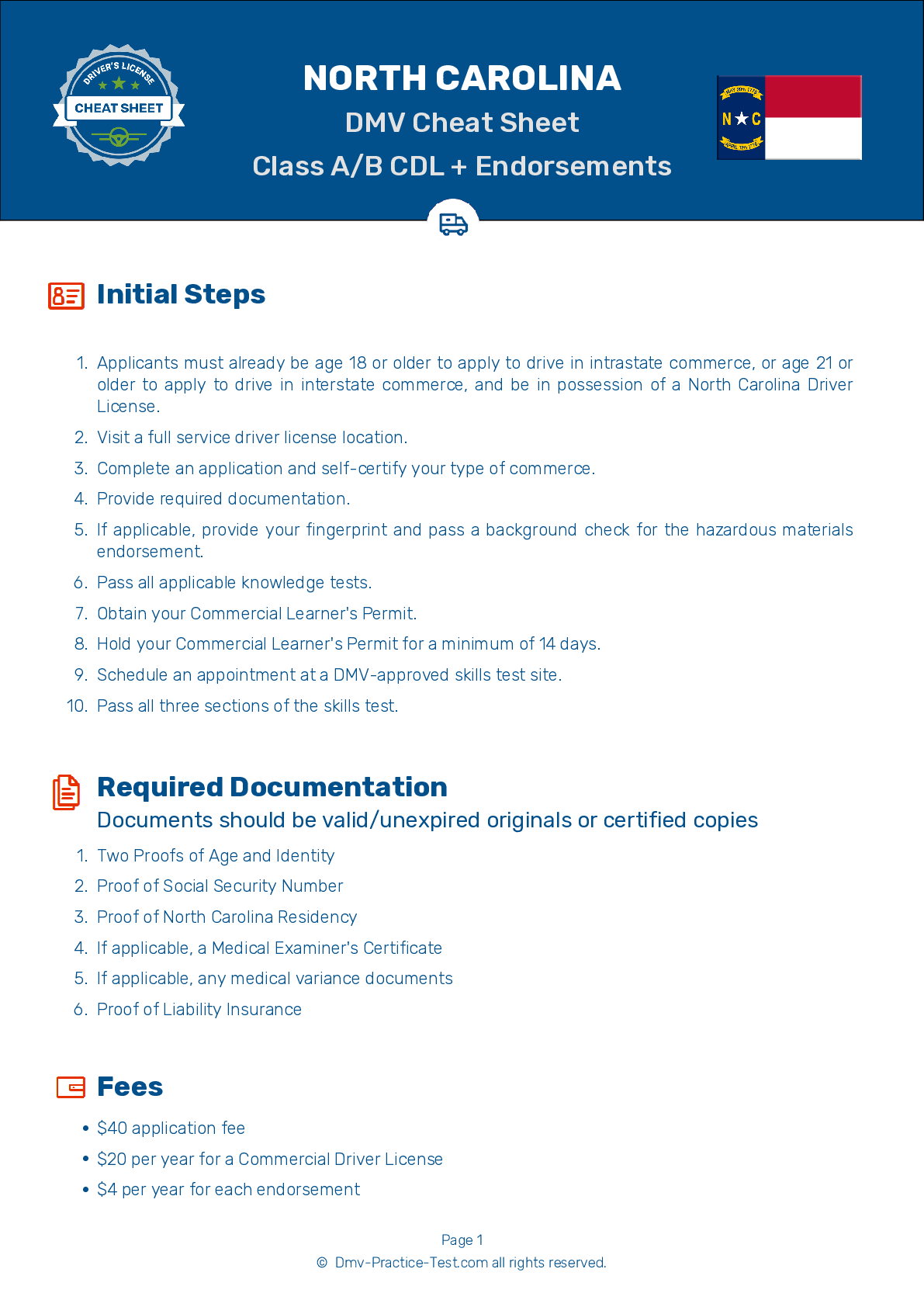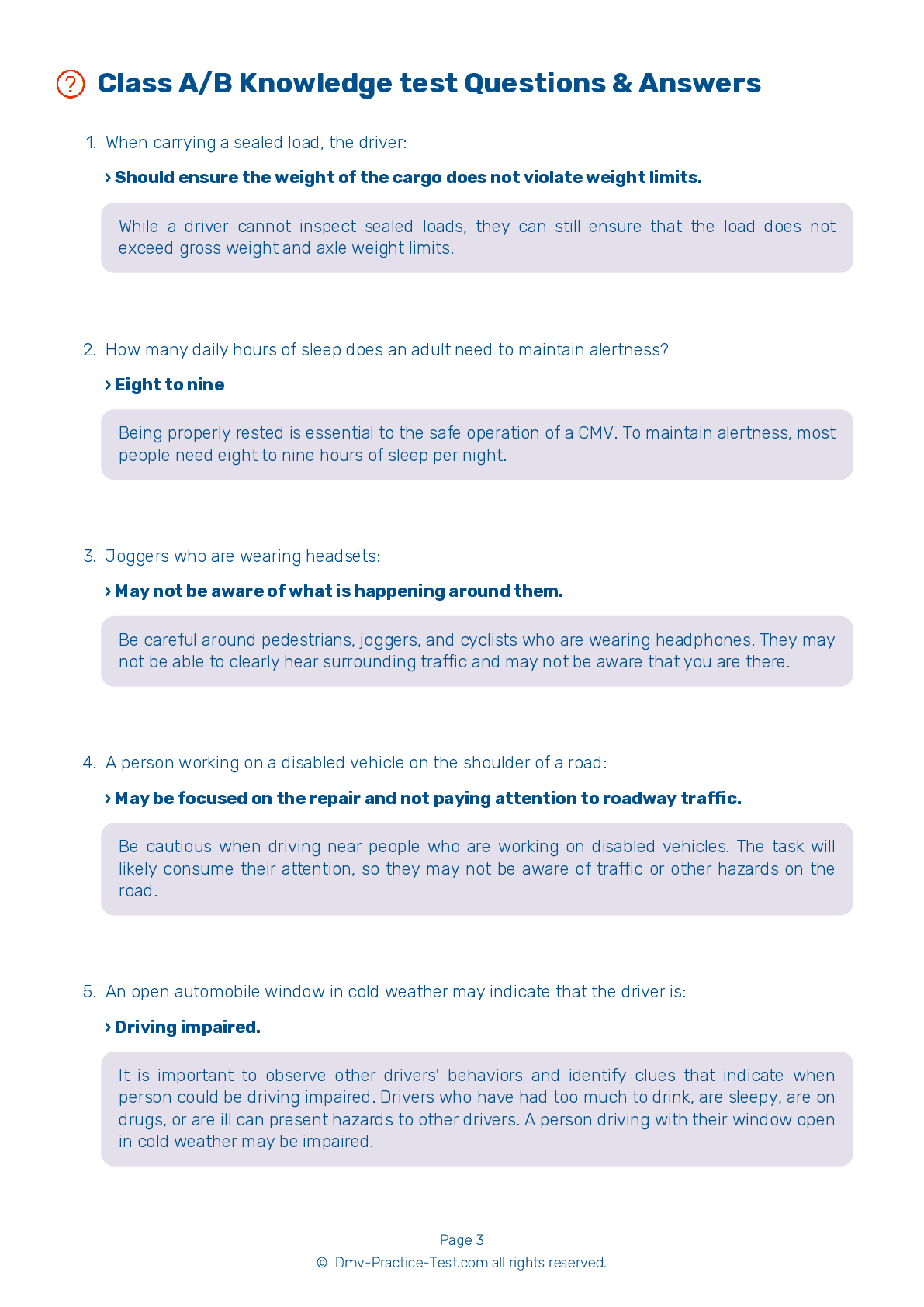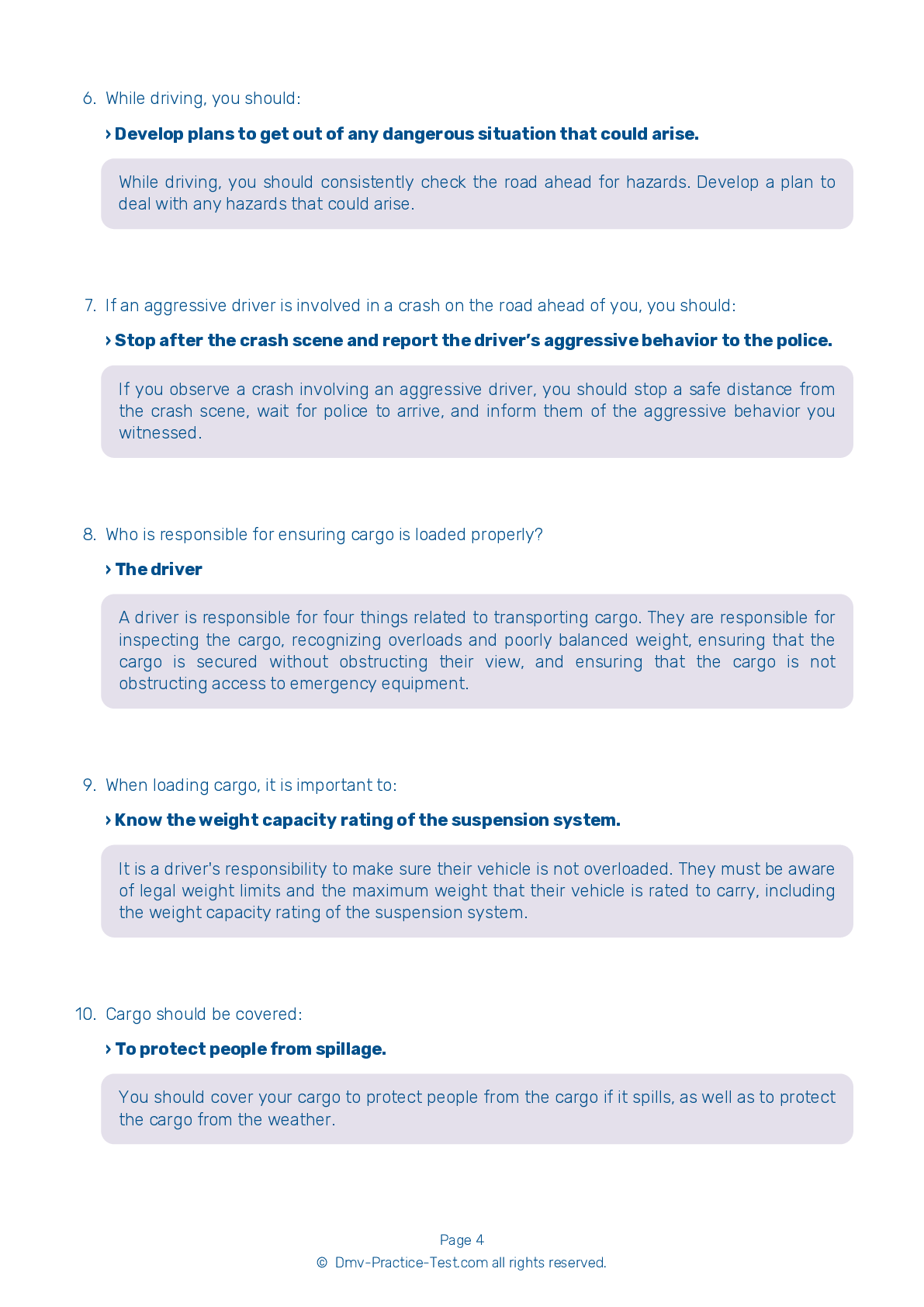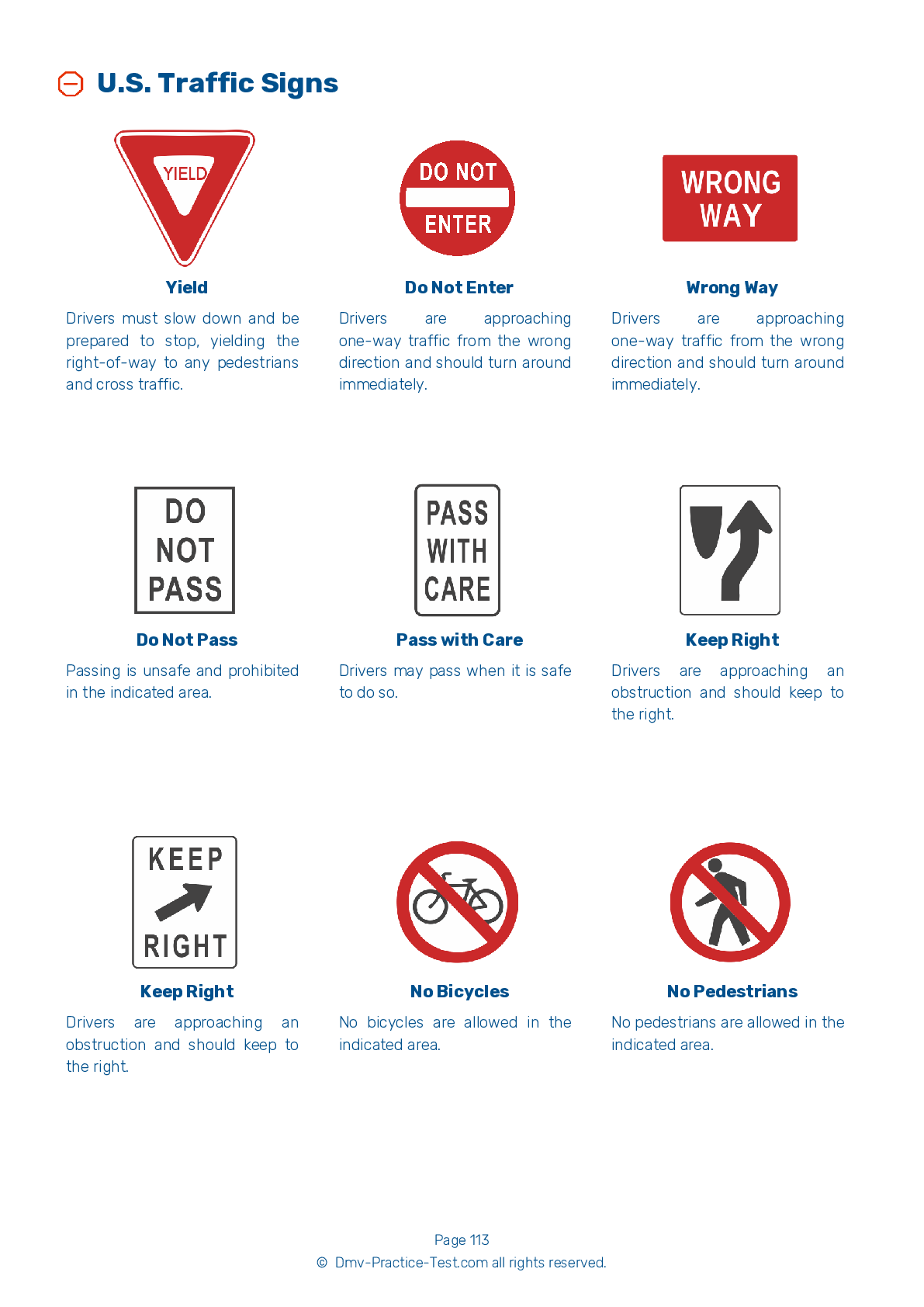Class B Driving Test | North Carolina 2026 #1 Page 5 of 7
Train for FREE online with our North Carolina class B license test. The official exam test consists of several obligatory parts, with all of them checking your knowledge of different blocks of road rules. If you need to obtain a NC CDL class B permit in 2026, practice as much as possible. Free sample tests published on our website will help you check and improve your knowledge and boost your grades. Please bear in mind that CDL class B requirements may vary from state to state.
29 . Areas of the road that are shaded:
Because they are exposed to less sunlight, shaded patches of road will stay cooler longer than other areas of the road. Due to the lack of direct sunlight, shady areas can remain icy and slippery after ice on other areas of the road has melted.
30 . In a dual air brake system:
A dual air brake system is made up of two separate air brake systems. The systems share a single set of brake controls, but each has its own air tanks, hoses, and lines.
31 . If a truck is equipped, a trailer brake hand valve can be used to:
If a tractor-trailer is so equipped, the trailer brake hand valve can be used to stop the vehicle from rolling back when being started from a stop.
32 . What should you do if the braking system cannot build up hydraulic pressure?
If your hydraulic braking system will not build up the pressure needed to slow or stop your vehicle, there are a few possible solutions. Try shifting into a lower gear, pumping the brakes, and/or using the emergency brake.
33 . Broken suspension parts:
The suspension system is responsible for supporting a vehicle, supporting its load, and keeping its axles in place. When inspecting your vehicle, check for damaged or missing spring hangers, spring leaves, shock absorbers, u-bolts, and frame members. Broken parts in the suspension system are extremely dangerous.
34 . Anti-Lock Braking Systems (ABS):
ABS is equipped in addition to a vehicle's normal braking system and it neither increases nor decreases the vehicle's braking capability. ABS activates during hard applications of the brake pedal in order to prevent wheels from locking up.
35 . As part of the vehicle inspection test, a CDL applicant may be asked to:
When checking the engine compartment during the vehicle inspection test, you will need to check the engine oil level.
See the exact questions that will be on the 2026 North Carolina DMV exam.
99.2% of people who use the cheat sheet pass the FIRST TIME
Lillian MCcranie explains how our CDL study guide was helpful in passing the exam and recommends it to everyone.
Cameron tells us how he purchased the CDL exam, and found it to be a useful tool which helped him pass the exam and find a job.



